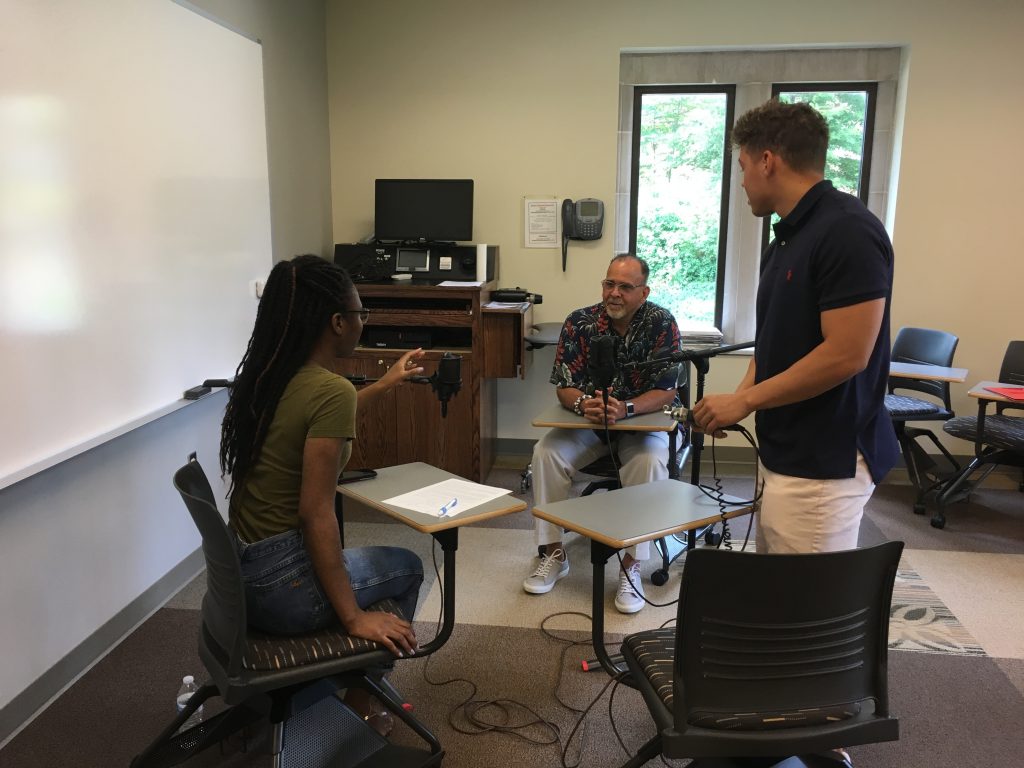by Ayele d’Almeida
Ayele d’Almeida is a Political Science and Leadership double-major from Bloomington, Minnesota. Her work at Common Ground, the University of Richmond’s social justice initiative informed her decision to pursue the Race & Racism Project as a summer fellow. She hopes that through her fellowship and continued connection with the project, she will learn more about the University of Richmond. Ayele believes that the Race & Racism Project will also help later in life – as the project forces her to question institutions she may benefits from. She hoped to focus her research on black faculty and the presence of black students in white-dominated clubs and spaces.

I started my search for information on Stan Jones with a simple Google search: “Stan Jones University of Richmond.” My task was to research Mr. Jones–a 1983 graduate– before our oral history interview for the Race & Racism Project. The very first link was his LinkedIn profile, which would eventually send me down a rabbit hole of questions and digging about social spaces that welcome black students. Fortunately for me, Stan Jones’ entire professional career was laid out on his profile. Unfortunately, the questions that I had about his experience at the University of Richmond could not be answered in the small, 15- word summary on Mr. Jones’ LinkedIn page. I was interested in the experiences with that could not be shorted into a time span.
“Football, Reserve Officer Training Corps (ROTC), Phi Beta Sigma Fraternity Inc., Society of Collegiate Journalists” – these were the activities listed on Stan Jones’ LinkedIn page. I narrowed my focus on his fraternity. Phi Beta Sigma, which is a historically black Fraternity, I thought that it was interesting that there may have been a black fraternity on campus during Jones’ time. In my mind, learning more information about the presence of very specific black spaces would inform my knowledge of social experiences for black students. With these questions in mind, I searched the Race & Racism Project digital collection for Jones’ Fraternity. I found an article from 1980 entitled “Phi Beta Sigma Colonizes New Fraternity at Richmond” that describes the potential addition of the fraternity to the campus. The article brings to the light the need for black social spaces on campus.
The most interesting aspect of the article is the very loud call for “black culture on campus.” James Reed, who was initiated into Phi Beta Sigma at Virginia Commonwealth University (VCU), spearheaded the effort to colonize on campus. Reed, who would become the fraternity’s president, emphasized the importance of bringing black culture to the University of Richmond: “Once blacks realize they can come here for academics and a social life on campus, we will be bringing culture to the University; they will come here for academics, not athletics.” Interestingly enough, Phi Beta Sigma was made up of black football players. Perhaps there is something to be said about athletes, a notoriously tight group, seeing a need to colonize their own fraternity and create their own social spaces on campus. As someone who goes to the University in a time where there is a social divide between athletes and non-athletes, I am surprised to see such displays of activism by Reed, who one would assume had abundant options for social spaces.
My inquiry into Stan Jones’ experience at the University of Richmond led to broader questions about how black students were incorporated into clubs, organizations and the general social scene. What does James Reed pledging at VCU, and subsequently seeing a need to bring black Greek life to campus mean about the social spaces available to black students? What are the similarities between the social lives of black students then and now? These questions lead me to evaluate the social scenes on campus today. I just wonder now about how racial minorities feel about the representation of their culture in social spaces on the University of Richmond campus. Are the spaces (clubs and organizations) on campus now enough?
Going into my interview, I am hoping that Mr. Jones’ experiences will help me understand the broader black social experience. Although the colonization of Phi Beta Sigma signaled an addition of a black space on campus, I think It is important that we acknowledge that this addition was out of need. Speaking to Mr. Jones about his time on campus will allow me to understand how the experiences of black students on campus shaped or informed their demand for their own social spaces.

Comments are closed.